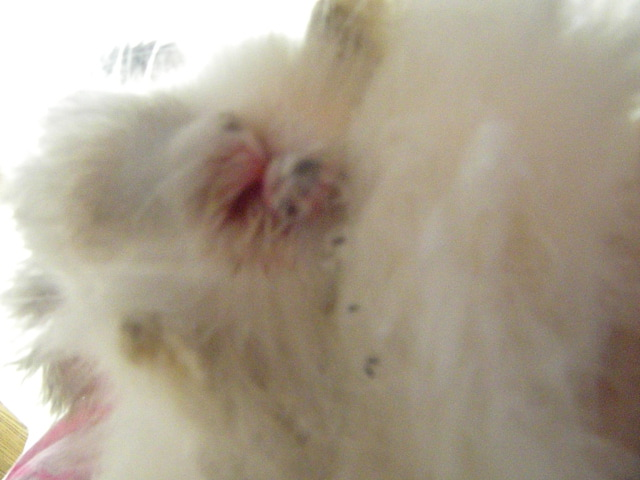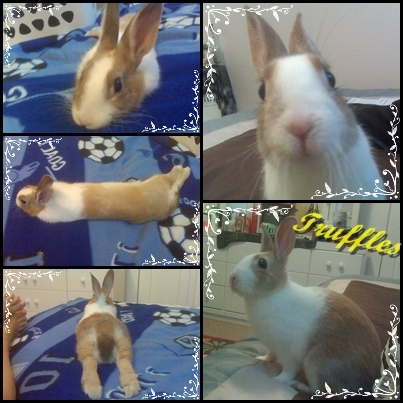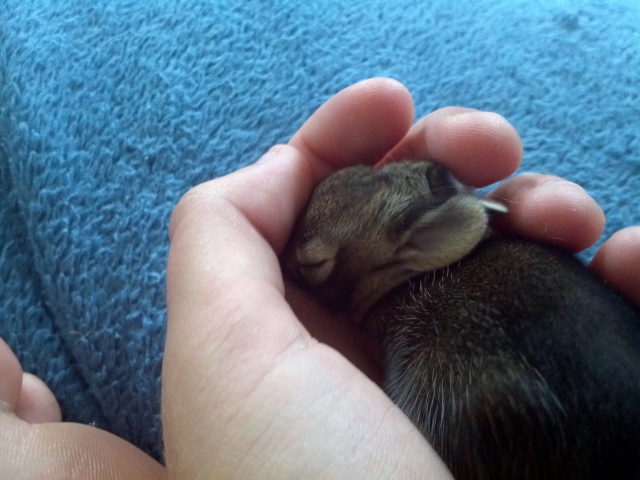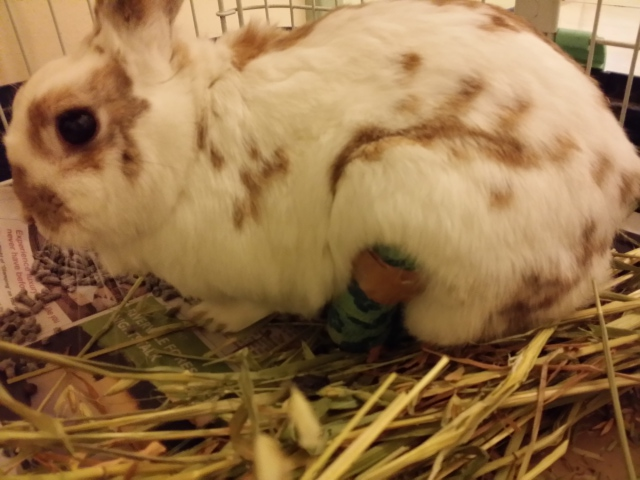QuestionI have a 4 year old unspayed Havana doe who over the last week and a half has lost a considerable amount of weight. She is still mobile, friendly, eating, drinking, and making bowel movements. She has rather large tumor in the genital area that is connected to the tissue underneath (not free floating like a fatty deposit would be) and we are pretty sure she has mammary cancer, which we know is common in unspayed does. We are keeping her comfortable and watching carefully for distress and pain, but if she keeps loosing weight like this she will not last long. There are no rabbit saavy-vets any where near here, (at least that I, the local vets, and rabbit.org knows of) so we are doing our best with the retired Vet Tech knowledge we have.
I just wanted to check in and see if there is something else that it could be - the tumor was apparent before the weight loss began - and if there is anything we could or should do to help her stay comfortable.
Thank you so much.
P.S. It's probably taboo to ask two questions in one box, but one of our other rabbits has had recurring eye problems. Nothing too serious, but just irritated, red, runny, and usually clears up with a good dose of neomycin ophthalmic, and none of the others have problems. Any suggestions on clearing it up for good?
AnswerDear Jessica,
There isn't much you can do for your poor bunny with the mammary tumor without the help of a vet. I hope you can find one who will at least be able to prescribe you some pain medication for her. Metacam (0.3mg/kg once per day) and/or tramadol (2-6mg/kg twice a day) will help her stay relatively comfortable. You might be able to find a rabbit vet here:
www.rabbit.org/vets
I hope so.
For the bunny with the runny eyes, please see:
www.bio.miami.edu/hare/sneezing.html
Ophthalmic ointments can offer temporary relief, but a long-term solution will usually require more aggressive care.
I hope this helps.
Dana

 My angora rabbit has a blood blister on his lip
QuestionQUESTION: Hi, I have an English angora jr buck
My angora rabbit has a blood blister on his lip
QuestionQUESTION: Hi, I have an English angora jr buck
 sick bunny- pasteurella?
Question
Truffles
Hey There Dana,
sick bunny- pasteurella?
Question
Truffles
Hey There Dana,
 Baby bunny with injury
Questionbaby rabbit
QUESTION: Hello, my name is
Baby bunny with injury
Questionbaby rabbit
QUESTION: Hello, my name is
 Bunny with broken hind leg-second opinion request
Question
broken leg 1
Hi Dana,
I have a 7 year
Bunny with broken hind leg-second opinion request
Question
broken leg 1
Hi Dana,
I have a 7 year
 abscess on bunnys leg/ankle
Question
Ruby
I m having troubles with my bunny
abscess on bunnys leg/ankle
Question
Ruby
I m having troubles with my bunny